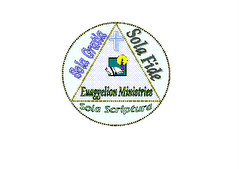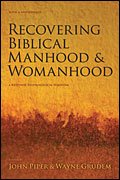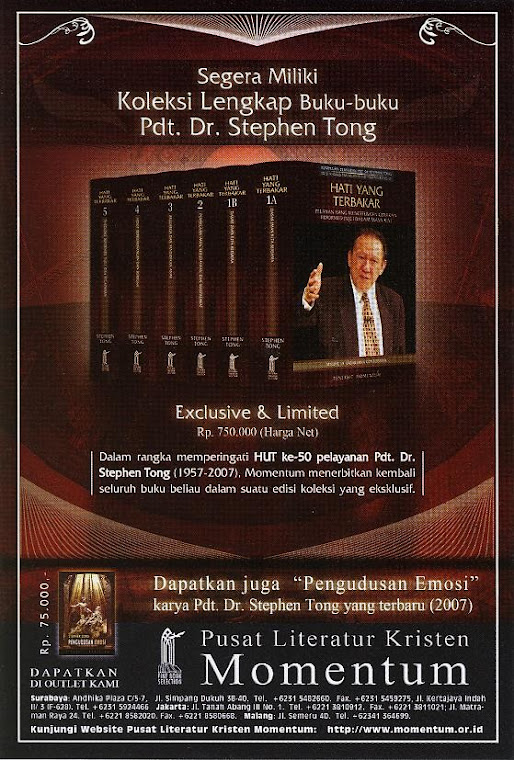Book
THE GOD CONVERSATION:
Using Stories and Illustrations to Explain Your Faith
by:
Prof. J. P. Moreland, Ph.D. and Prof. Timothy Muehlhoff, Ph.D.
Foreword: Rev. Lee Strobel
Publisher: InterVarsity Press, 2007
Prof. J. P. Moreland, Ph.D. and Prof. Tim Muehlhoff, Ph.D. in their book The God Conversation teaches us about how to share and explain Christianity clearly and wisely to others. I call that methodology as a friendship or conversational or dialoguing evangelism. They argue that if we want the Gospel listened by others, we should listen, pay attention to, and understand others’ belief. We should understand others’ difficulties regarding God and Christianity, such as: the problem of evil, the uniqueness of Christianity, the resurrection of Jesus Christ, ethics and morality, and the creation. After that, we should explain their difficulties and provide solutions by using stories, illustrations, and some clear explanations to remind their difficulties (and fallacies) regarding God and Christianity and lead them to Christ.
In order to realize that methodology, in their book, Dr. Moreland and Dr. Muehlhoff provide many stories, illustrations, and clear explanations as resources for Christians to share to others in evangelism. Those stories, illustrations, and clear explanations are taken from films, history, events, etc. Let this book equippes us to preach the Gospel to others clearly and wisely.
Endorsement:
“Moreland and Muehlhoff have written a unique and engaging book. The style is casual, yet the topics are treated with sufficient detail and nuance to be helpful. I commend The God Conversation to anyone seeking to discuss these matters in meaningful ways with family, friends and colleagues.”
Stan W. Wallace, Ph.D.
(Faculty Ministry & Emerging Scholars Network and National Director at InterVarsity Christian Fellowship; Bachelor of Science—B.S. in Secondary Education from Miami University; Master of Arts—M.A. in Philosophy of Religion and Ethics, summa cum laude from Talbot School of Theology, Biola University; and Doctor of Philosophy—Ph.D. from Marquette University)
“I love stories and illustrations because of the impact they have had on me. If they have had a similar effect on you, this book is for you. It will reinforce your faith, hone your ability to share your relationship to Jesus Christ and delight your imagination. I cannot give it a higher recommendation.”
Prof. Clyde Cook, D.Miss.
(former president at Biola University; Bachelor of Arts—B.A. from Biola University, U.S.A.; Master of Divinity—M.Div. and Master of Theology—Th.M. from Talbot Theological Seminary, U.S.A.; and Doctor of Missiology—D.Miss. from Fuller Theological Seminary, U.S.A.)
“Today’s culture is increasingly a story-based culture. As Tim and J. P. help to show, a story-based culture does not have to be a culture without truth. This book is an excellent tool to learn how to better communicate the great truths about God, the world, our faith and human nature through stories, modern-day parables, and by listening and teaching like Jesus. It is a must-read for all who want to help others find faith in Jesus Christ.”
Alan Andrews
(U.S. President of The Navigators)
“If you are a headhunting evangelist or an intellectual who must have the last word, put this book down and go home. If you love your pre-Christian friends and want stimulating resources to engage them in meaningful spiritual dialogue on hard questions, J. P. and Tim are the mentors you seek.”
Dr. Fred H. Wevodau
(Director of U.S. Metro Mission of The Navigators)
“Most conversations, let alone ones about God, are either dull, single-sided or competing monologues full of smoke. It simply shouldn't be. Carrying on a vital, passionate, engaging conversation with another human being is an art that has been sufficiently lost that we need wisdom and perspective on how to engage well. The God Conversation is a gift to the church to invigorate our conversations with believers, seekers and unbelievers. J. P. and Tim walk with us through the use of story and authenticity with such masterful delight that one ends by sensing the authors have given us the very gift we are to give to others.”
Prof. Dan B. Allender, Ph.D.
(President and Professor of Counseling, Mars Hill Graduate School, and author of The Wounded Heart and To Be Told; M.Div. from Westminster Theological Seminary, U.S.A. and Ph.D. in Counseling Psychology from Michigan State University)
Their stories, coupled with advice on constructive listening, will be helpful to any Christian who wants to move beyond ideas and arguments to communicate the gospel using a softer approach.
Christian Retailing, November 2007
The stories are memorable and thought provoking, and the colver writing brings out the authors' message. This is a well-written guidebook for evangelizing the curious and responding to skeptics.
Jason W. in Church Libraries, Spring 2008
The God Conversation offers user-friendly help in countering objections to the faith.
—World, March 22/29, 2008
Biography of the author:
Prof. James Porter Moreland, Ph.D. (born 1948), better known as J. P. Moreland, is currently Distinguished Professor of Philosophy at Talbot School of Theology at Biola University in La Mirada, California, U.S.A. He is also a fellow of: the Wilberforce Forum (2001 to present) and the Center for the Renewal of Science & Culture, Discovery Institute (2000-present). He earned Bachelor of Science (B.S.) from University of Missouri; Master of Theology (Th.M.) from Dallas Theological Seminary, U.S.A.; Master of Arts (M.A.) from University of California, Riverside; and Doctor of Philosophy (Ph.D.) from University of Southern California, U.S.A. Moreland has authored or co-authored numerous publications, including:
• Scaling the Secular City: A Defense of Christianity (1987)
• Christianity and the Nature of Science: A Philosophical Examination (1989)
• The Life and Death Debate: Moral Issues of Our Time (with Norman Geisler, 1990)
• Does God Exist?: The Debate Between Atheists and Theists (with Kai Nielsen, 1990)
• The Creation Hypothesis: Scientific Evidence for An Intelligent Designer (1994)
• Love Your God With All Your Mind: The Role of Reason in the Life of the Soul (1997)
• Body and Soul: Human Nature and the Crisis of Ethics (with Scott Rae, 2000)
• Naturalism: A Critical Analysis (co-editor with William Lane Craig, 2000)
• Philosophical Foundations for a Christian Worldview (with William Lane Craig, 2003)
• Kingdom Triangle: Recover the Christian Mind, Renovate the Soul, Restore the Spirit’s Power (2007)
• Consciousness and the Existence of God (2009)
• The Recalcitrant Imago Dei (2009)
• The God Question: An Invitation to a Life of Meaning (2009)
Prof. Timothy Muehlhoff, Ph.D. is Associate Professor of Communication at Biola University in La Mirada, California, U.S.A. He earned B.A. from Eastern Michigan University; M.A. and Ph.D. from University of North Carolina, Chapel Hill, U.S.A. He wrote many books, include: Marriage Forecasting: Changing the Climate of your Relationship One Conversation at a Time (Downers Grove, IL: InterVarsity Press, 2010); Authentic Communication: Christian Speech Engaging Culture (Downers Grove, IL: InterVarsity Press, 2010) co-author: Todd Lewis; other articles, journals, etc.





